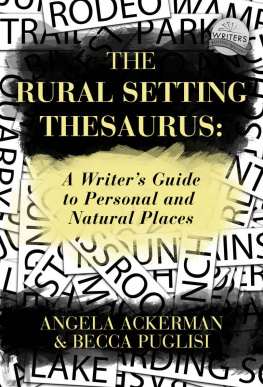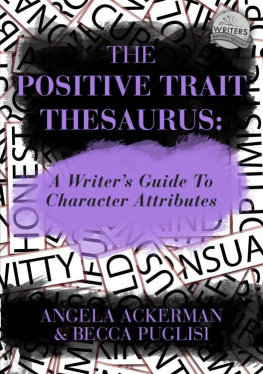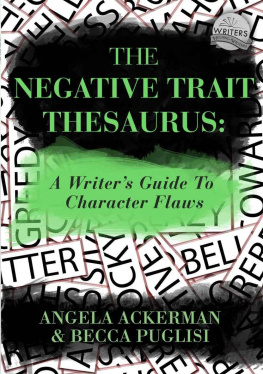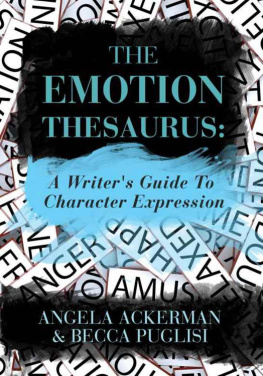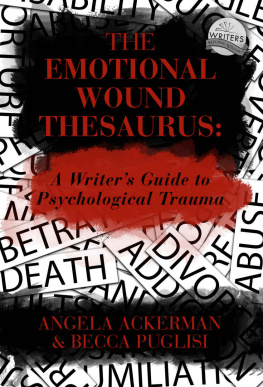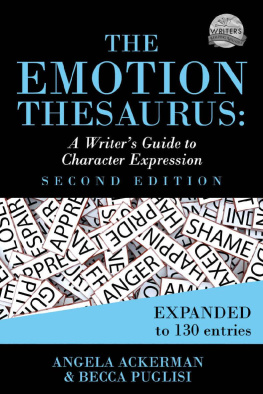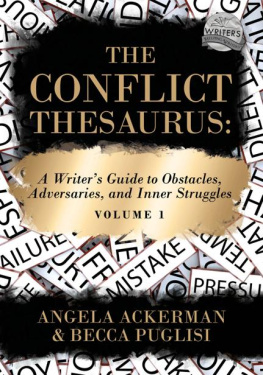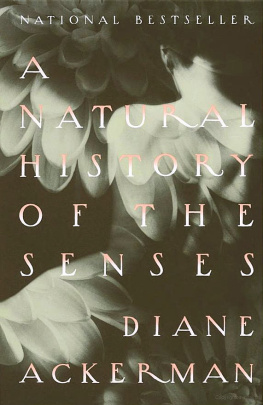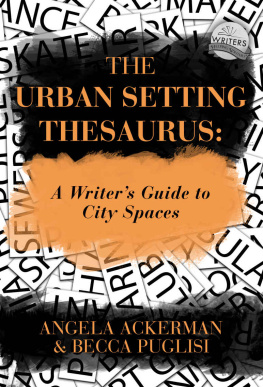Angela Ackerman - The Rural Setting Thesaurus: A Writer’s Guide to Personal and Natural Places
Here you can read online Angela Ackerman - The Rural Setting Thesaurus: A Writer’s Guide to Personal and Natural Places full text of the book (entire story) in english for free. Download pdf and epub, get meaning, cover and reviews about this ebook. year: 0, genre: Home and family. Description of the work, (preface) as well as reviews are available. Best literature library LitArk.com created for fans of good reading and offers a wide selection of genres:
Romance novel
Science fiction
Adventure
Detective
Science
History
Home and family
Prose
Art
Politics
Computer
Non-fiction
Religion
Business
Children
Humor
Choose a favorite category and find really read worthwhile books. Enjoy immersion in the world of imagination, feel the emotions of the characters or learn something new for yourself, make an fascinating discovery.
- Book:The Rural Setting Thesaurus: A Writer’s Guide to Personal and Natural Places
- Author:
- Genre:
- Year:0
- Rating:4 / 5
- Favourites:Add to favourites
- Your mark:
- 80
- 1
- 2
- 3
- 4
- 5
The Rural Setting Thesaurus: A Writer’s Guide to Personal and Natural Places: summary, description and annotation
We offer to read an annotation, description, summary or preface (depends on what the author of the book "The Rural Setting Thesaurus: A Writer’s Guide to Personal and Natural Places" wrote himself). If you haven't found the necessary information about the book — write in the comments, we will try to find it.
The Rural Setting Thesaurus: A Writer’s Guide to Personal and Natural Places — read online for free the complete book (whole text) full work
Below is the text of the book, divided by pages. System saving the place of the last page read, allows you to conveniently read the book "The Rural Setting Thesaurus: A Writer’s Guide to Personal and Natural Places" online for free, without having to search again every time where you left off. Put a bookmark, and you can go to the page where you finished reading at any time.
Font size:
Interval:
Bookmark:
THE RURAL SETTING
THESAURUS:
A Writers Guide to Personal and Natural Places
Angela Ackerman
Becca Puglisi

MORE WRITERS HELPING WRITERS BOOKS
The Emotion Thesaurus: A Writers Guide to Character Expression
The Positive Trait Thesaurus: A Writers Guide to Character Attributes
The Negative Trait Thesaurus: A Writers Guide to Character Flaws
The Urban Setting Thesaurus: A Writers Guide to City Spaces
Copyright 2016 by Angela Ackerman & Becca Puglisi
All rights reserved
Writers Helping Writers
First print edition, June 2016
ISBN: 978-0-9897725-7-0
No part of this publication may be reproduced or distributed in print or electronic form without prior permission of the authors. Please respect the hard work of the authors and do not participate in or encourage the piracy of copyrighted materials.
Edited by: C. S. Lakin and Michael Dunne
Book cover design by: Scarlett Rugers Design 2016
EBook formatting by: Polgarus Studio
ABOUT THE AUTHORS
Angela Ackerman and Becca Puglisi are bestselling authors, writing coaches, and international speakers. Their books are available in five languages, are sourced by US universities, and are used by novelists, screenwriters, editors, and psychologists around the world. Angela and Becca also co-founded the popular Writers Helping Writers site, a hub for writers to hone their craft, as well as One Stop for Writers, an innovative online library built to help writers elevate their storytelling.
DEDICATIONS
To every writer who ever dreamed, and then had the courage to follow that dream wherever it led.
And especially to Lee, for not using the ants.

Wish you had a powerhouse writing resource at your fingertips that could save you valuable time while elevating your storytelling? One Stop for Writers might just be the answer. Brought to you by Becca and Angela, the authors of this and other bestselling writing books, along with Lee Powell, the creator of Scrivener for Windows, the One Stop online library is the resource youve been searching for.
Our unique thesaurus collection covers emotions, settings, weather, characterization, symbolism, and other elements of description, and will help set your book apart by bringing the fresh imagery and deeper meaning that your readers crave. Along with an array of unique tools, tutorials, structure maps, timelines, and generators, you can also plan and organize your writing like never before.
Stop by sometime if you like; registration is always free.





PRAISE FOR THE EMOTION THESAURUS
One of the challenges a fiction writer faces, especially when prolific, is coming up with fresh ways to describe emotions. This handy compendium fills that need. It is both a reference and a brainstorming tool, and one of the resources I'll be turning to most often as I write my own books.
~ James Scott Bell, best-selling author of Deceived and Plot & Structure
PRAISE FOR THE POSITIVE AND NEGATIVE TRAIT THESAURUS BOOKS
In these brilliantly conceived, superbly organized and astonishingly thorough volumes, Angela Ackerman and Becca Puglisi have created an invaluable resource for writers and storytellers. Whether you are searching for new and unique ways to add and define characters, or brainstorming methods for revealing those characters without resorting to clichs, it is hard to imagine two more powerful tools for adding depth and dimension to your screenplays, novels or plays.
~ Michael Hauge, Hollywood script consultant and story expert , author of Writing Screenplays That Sell
Table of Contents
CRAFTING SETTINGS THAT CREATE EMOTIONAL CONNECTIONS
The recipe for good fiction includes a number of key ingredients such as compelling characters, high stakes, an emotional connection between readers and the storys cast, and engaging conflict. But theres another important piece that is often overlooked, to the detriment of many potentially great books: the setting. Every scene in every story has one, whether its part of a sprawling kingdom (Middle Earth), a room onboard a cluttered spaceship ( Alien s Nostromo ), or locales found within a sleepy little town (Maycomb County, Alabama). Big or small, familiar or foreign, the setting in each scene should be unique and memorable. Its the responsibility of the author to elevate a storys locations so they take on a life of their own and imprint themselves upon readers in an unforgettable way.
Readers the world over know what its like to fall in love with the settings from a favorite book. Whether the locations were real or fictional, they felt as if theyd been there , or they wished they could go. As authors, we want to create this sense of nostalgia at the end of a book; we want readers to wish they could go back. But how does this happen? What makes a setting tangible and as interesting as the characters themselves?
For one thing, the locations for a given story need to be more than simple stage dressing. Vibrant settings are thoughtfully chosen. Theyre places that hold meaning for the character and evoke emotion. They provide opportunities for conflict and personal tragedy and growth. As such, birthplaces, bedrooms, schools, workplaces, hangouts, and vacation spots play a pivotal role in shaping who a character is and who he will become. There is an inherent emotional connection between a setting and the characters who frequent it.
Written effectively, this emotional connection reaches out to include the reader too. Hogwarts, The Overlook Hotel, Tarasettings like these create an emotional response in readers because the author wrote them in a way that evoked feelings. Through the use of symbolism and multisensory descriptions, by using the setting as a vehicle for establishing mood or introducing conflict, the author pulled readers in, allowing them to experience life along with the characters in their worlds.
This is what readers want: to get lost in a bookto be so completely immersed in the story that theres an unsettling jolt when theyre returned to real life. Its the authors job to make this happen for readers, and one of the most effective ways to do it is by bringing the setting to lifemaking it dynamic, even epic.
Fortunately, its not as hard as you might think.
THE SETTING AS A VEHICLE FOR CONFLICT
One of the beautiful things about setting is that it can be used as a vehicle for many other important story elements. Take conflict, for exampledefinitely a necessary component. Story conflict can be simply defined as a struggle or difficulty that impedes a character from achieving his goal. It might be a physical roadblock, a confrontation with a friend, or an internal struggle (such as addiction or self-doubt) that makes it difficult for him to overcome his Achilles heel and move forward.
Font size:
Interval:
Bookmark:
Similar books «The Rural Setting Thesaurus: A Writer’s Guide to Personal and Natural Places»
Look at similar books to The Rural Setting Thesaurus: A Writer’s Guide to Personal and Natural Places. We have selected literature similar in name and meaning in the hope of providing readers with more options to find new, interesting, not yet read works.
Discussion, reviews of the book The Rural Setting Thesaurus: A Writer’s Guide to Personal and Natural Places and just readers' own opinions. Leave your comments, write what you think about the work, its meaning or the main characters. Specify what exactly you liked and what you didn't like, and why you think so.

